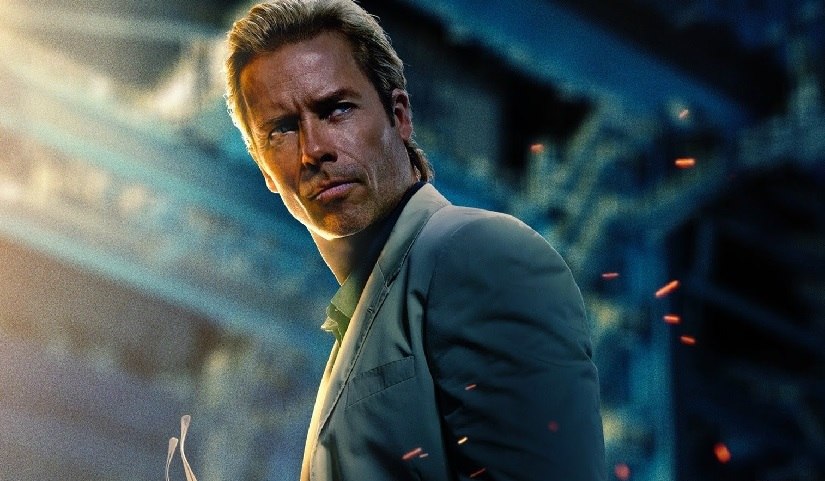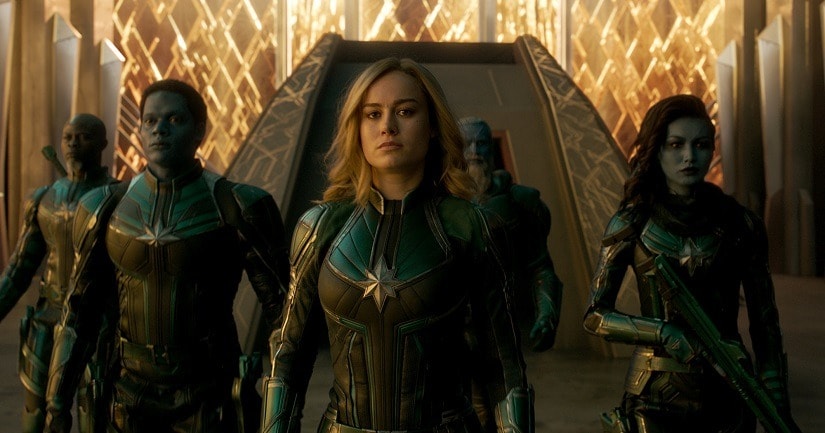From Iron Man 3 to Captain Marvel: How MCU complicates the idea of the Alien — of who belongs and who doesn't
From Iron Man 3 to Captain Marvel: How MCU complicates the idea of the Alien — of who belongs and who doesn't
Here's a fun question: what is the most common denominator in the movies that make up the Marvel Cinematic Universe? One might say, superheroes. But that answer is really blah and unimaginative. Think harder. If there has been one theme which has consistently dominated the MCU, it is the presence of an outsider as a character.

In the MCU, this outsider takes various forms. In Iron Man 3, for example, the character of Aldrich Killian - who later on turns out to be the supervillain - begins first as your quintessential outsider. He meets Tony Stark in the beginning, where he is presented as a nervous, mousy kind. He desperately wants to fit in. Hence, when Stark tells him to wait outside, he does so, for the entire night, and Stark never shows up. In Captain America: The First Avenger, Steve Rogers is, similarly, an outsider. Thin, lacking the conventional notion of male beauty, physically weak, he is constantly bullied and beaten up, and has to depend upon Bucky Barnes to come and rescue him. Even when he becomes Captain America, he ends up being frozen in a thick layer of ice towards the end, only to be rescued 70 years later. So when he wakes up in modern day New York, like Rip Van Winkle, he is still very much an outsider, unable to understand the massive societal changes that has taken place while he was asleep.
How MCU Developed the Idea of the ‘Alien’
But by this time, the notion of the outsider was very subtle within the MCU. Things really changed by the time Thor releases. Because with him, we are literally confronted with a scenario of an 'alien' dropping suddenly on earth. In fact, this part is alluded to multiple times. In Avengers: Age of Ultron, Tony Stark himself says how things changed after Thor landed on earth, directly leading to the final arrival of Loki in Avengers, and with him, the alien Chitauri horde, who wreak havoc on New York.
But while it is surely tempting to read the movies with the MCU as a straight out fight between those who belong versus those who do not, a closer look reveals that things are far more complicated. Thor is a great example. He really doesn't belong. He comes from a different planet altogether, and yet, despite him being a quintessential alien, he is embraced by the Avengers, becomes a part of the team himself, and begins to play an important role in saving the planet. This belongingness of Thor to Earth becomes so acute that Earth becomes the final resting place of Odin, his father. It also becomes the final destination of his people to which they begin to head, after the destruction of Asgard in Ragnarok, before being intercepted by Thanos.
And even the question of Thor opening the door for the invasion of Earth by the alien horde, and finally the arrival of Thanos, becomes more complicated, when we arrive at Captain Marvel in 2019. The point is the thematic subtleties which are present in the first and second phases of MCU, becomes even more amplified by the time we arrive at Phase 3. The very question lurking at the heart of the entire MCU taken together is this: who are we? Where do we belong? And who belongs?
The ‘Alien’ becomes complicated with Captain Marvel

Captain Marvel is a beautiful culmination of these questions which are only teased in the previous films. If from Thor through Avengers, the question about who we are and who belongs is more or less straightforward. When Loki arrives in Avengers, and in that scene in Austria where after the opera, Loki reveals his true self, and asks the population to kneel, and one person does not kneel, MCU seems to point out that what defines us as human race, is how we stand up against authority and totalitarianism, and the inherent heroism which is present in us all, whether we have superpowers or are mere mortals.
Captain Marvel complicates this. By situating the movie within the battle between the Kree and the Skrull (with the latter at first depicted as evil and the former as heroic), Carol Danvers feels that the purpose of her life is to defeat the Skrull. Because in the beginning, that seems to be the moral thing to do. In fact, Jude Law's character, Yonn-Rogg, as the mentor of Danvers, he leaves no stone unturned to remind Danvers that she has to control her powers, and that serving the Kree is the only right thing to do, and nothing else matters. That becomes, for her, the moral compass within which she has to fix herself in.
Her real powers are unleashed, and she becomes 'liberated' only when she is captured by the Skrull, returns to earth to learn the truth about herself, and where she belonged. We finally come to understand that she was never a Kree, that a part of her life she always thought was real, was exactly the opposite, and her memories which she had always discarded as mere dreams, with no basis in reality, turns out to be the reality. This overturning of order becomes also the overturning of morals; the good suddenly becomes the bad, and the bad are revealed as good.
The idea of who we are, and the question of belonging becomes all the more complicated. The movie reveals that we as humans, and the idea of morality is itself like a carefully constructed Russian doll, with layers stacked upon layers. And the question of Us-versus-Them is not that simple binary anymore. In fact, the characterisation of the Skrull is very interesting. We need to note that one of the powers that a Skrull has, is to become someone else. Quite literally. In short, they are shape-shifters. Hence, it becomes even more difficult to distinguish who is who. When they take on the characteristics of a human - like Talos does and becomes Nick Fury's boss, Keller - they become acceptable. The idea of accepting someone who is not like us becomes the important moral lesson, when both Fury and Danvers learns that it was the Kree who started the war by enslaving the Skrull, and the latter were only retaliating. It becomes a plea for accepting difference, whether it be nationality, race, gender, and might we add, even sexuality.
While Endgame seems to be the last of the Avengers, yet Marvel Cinematic Universe would continue. It would be incredibly interesting to see how Marvel develops the idea of the alien in their movies. Because it seems certain at this point, the complications in themes that we have seen all this while, is only going to continue further. The ink on this subject, is far from being over.

Comments
Post a Comment